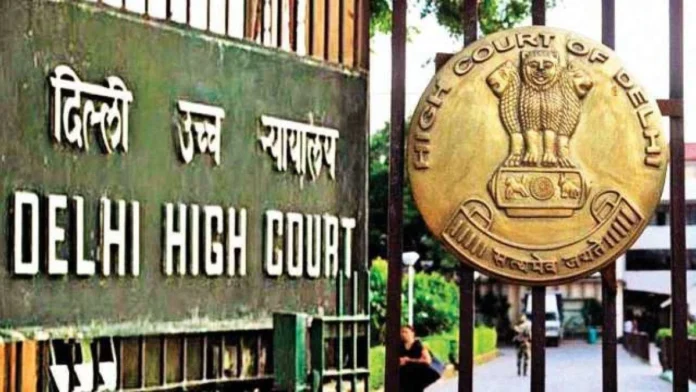The Delhi High Court has acquitted a man convicted under the Protection of Children from Sexual Offences Act (POCSO), ruling that the use of the term “physical relations” by the minor survivor does not automatically imply sexual assault. A bench comprising Justices Pratibha M Singh and Amit Sharma overturned the trial court’s decision, which had sentenced the accused to life imprisonment. The judgment emphasized the need for clear evidence when interpreting survivor testimonies in sensitive cases involving minors.
Case Background: Allegations and Conviction
The case originated in March 2017 when a 14-year-old girl’s mother complained alleging that her daughter had been lured and kidnapped from their home by an unknown individual. Police investigations led to the recovery of the girl in Faridabad, where she was found with the accused. The accused was arrested and charged under the IPC for rape and under the POCSO Act for penetrative sexual assault.
In December 2023, the trial court convicted the accused and sentenced him to life imprisonment. The court relied on the survivor’s testimony, which included references to “physical relations,” as the basis for its judgment. However, this conviction was later challenged in the Delhi High Court.

High Court’s Observations on Physical Relations
The High Court’s detailed analysis of the case shed light on the ambiguity surrounding the survivor’s use of the term “physical relations.” The bench ruled that such terms could not automatically be equated to sexual assault without substantial evidence to support the claim.
“The leap from ‘physical relations’ to sexual assault and then to penetrative sexual assault must be established by evidence,” the court stated. “The survivor’s words, while indicative of certain interactions, do not conclusively point to penetrative sexual assault as defined under the POCSO Act.”
The court also noted that while consent is immaterial in cases involving minors under the POCSO Act, the evidence must unequivocally demonstrate the occurrence of the alleged offense.
Judgement and Reasoning
The High Court ruled in favor of the accused, highlighting the lack of evidence to substantiate the claims made during the trial. It criticized the trial court for failing to provide a reasoned judgment and relying on inferences rather than clear proof.
“The impugned judgment lacks proper reasoning and fails to provide a rationale for the conviction. In such circumstances, the benefit of the doubt must go to the accused,” the bench observed.
The court further elaborated that the use of terms like “physical relations” or “sambandh banaya” requires contextual understanding and cannot solely form the basis for charges under Sections 3 of the POCSO Act or Section 376 of the IPC.

Legal Precedent and Implications
This landmark ruling by the Delhi High Court underscores the critical importance of evidence in legal proceedings, especially in cases under the POCSO Act. The judgment establishes that survivor testimonies, while vital, must be corroborated with substantial proof to ensure fair and just outcomes.
The decision also highlights the challenges faced by courts in interpreting ambiguous language in survivor statements. Legal experts have emphasized the need for nuanced investigations and careful consideration of testimony, particularly in cases involving minors.
Broader Context of the Ruling
The case raises important questions about the judicial process and the interpretation of survivor accounts in cases of sexual offenses. The High Court’s ruling reinforces the principle that the justice system must strike a balance between protecting minors and ensuring the accused’s right to a fair trial.
The ruling is expected to influence future cases where survivor testimonies involve ambiguous terms. Legal practitioners and activists have called for greater clarity in the language used during trials and a more evidence-driven approach to avoid wrongful convictions.

Reaction and Next Steps
The family of the minor survivor expressed disappointment at the acquittal, calling for a review of the evidence and seeking clarity on the court’s decision. Meanwhile, the legal community has hailed the judgment as a reaffirmation of the principle of the benefit of the doubt, ensuring fairness in judicial proceedings.
The ruling has also sparked discussions about the POCSO Act and its application in cases where evidence is not definitive. Activists have urged for reforms in investigative processes to strengthen the collection and presentation of evidence in such cases.
Importance of Evidence in Sensitive Cases
The Delhi High Court’s ruling reiterates the necessity of evidence-based judgments in sensitive cases involving minors. While the POCSO Act aims to protect children from exploitation, the court’s decision underscores the importance of upholding principles of justice and fairness for all parties involved.
The case highlights the ongoing need for judicial reforms and improved investigative practices to ensure that survivors receive justice while safeguarding the rights of the accused. This decision sets a precedent for interpreting survivor testimonies with care, ensuring that convictions are based on clear and compelling evidence.

